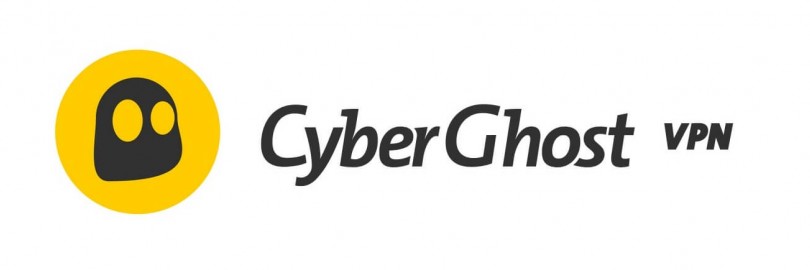
CyberGhost OpenVPN UDP vs. OpenVPN TCP vs. IKEv2 vs. WireGuard: Which VPN Protocol is Right for You?
- CyberGhost provides a full range of services: high speed, excellent privacy and reasonable prices. Most importantly, it has a series of advanced features that allow you to block ads, malicious websites, and trackers. This is a great VPN. CyberGhost VPN is one of the few products that support WireGuard on all its platforms, and it is an impressive list in itself: Fire Stick TV, Android, Android TV, iOS, Linux, macOS, Windows and various router. CyberGhost also provides other security protocols, so you can customize the secure connection in your own way. You can choose between IKEv2, OpenVPN (TCP/UDP) and WireGuard.
What is a VPN protocol?
A VPN protocol is a set of instructions that determines the authorization, authentication, encryption, traffic capturing, and transportation methods under which your VPN client establishes your connection to a VPN server.
The oldest VPN protocol is PPTP(point-to-point tunneling protocol), which is still in use today, but is widely regarded as one of the most insecure protocols. Other common protocols on the market include L2TP/IPSec, SSL, TLS, SSH, IKEv2/IPSec, OpenVPN and WireGuard.
VPN protocols are the processes by which a device connects to a VPN server. Some are ideal for security, some are suitable for speed, and some work best in certain situations.
What VPN protocols does CyberGhost support?
CyberGhost currently supports three leading protocols in desktop and mobile VPN applications — OpenVPN, WireGuard and IKEv2/IPSec.
CyberGhost does not support PPTP and L2TP protocols, because they have been proven to be insecure and easily recognized by IPS.
CyberGhost also does not support SSTP, SSL and SSH protocols, because they will affect Internet speed.
The VPN protocols that CyberGhost supports are the following:
WireGuard®
IKEv2 (or IKEv2/IPsec)
OpenVPN with a UDP port
OpenVPN with a TCP port
CyberGhost has easy-to-use and advanced applications for Windows, Mac, Android, iOS, Linux, etc.
These applications will automatically select the protocol that is most suitable for you based on your needs-the software itself will select the nearest fastest VPN server, and the best protocol will be selected accordingly.
But you can also choose other protocols according to your own needs for speed or security, that is, you can force switch to a certain protocol yourself.
Therefore, it is extremely important to understand the role, advantages and disadvantages of each VPN protocol.
What is IKEv2/IPsec?
IKEv2 (Internet Key Exchange version 2) is a VPN encryption protocol that handles request and response actions. It makes sure the traffic is secure by establishing and handling the SA (Security Association) attribute within an authentication suite – usually IPSec since IKEv2 is basically based on it and built into it.
Advantages:
In a lot of instances, you will find that IKEv2 is quicker than OpenVPN because it is not as CPU-intensive.
You’ll hardly notice a connection drop when using IKEv2, since anytime there’s an interruption, the protocol will instantly take measures to bring everything back up.
Offers an enhanced mobile support.
IKEv2/IPSec relies on a wide selection of high-end ciphers (Camelia, AES, Blowfish), and uses a certificate-based authentication for preventing Man-In-the-Middle (MiM) and Denial of Service (DoS) attacks.
Disadvantages:
Not as universally supported as OpenVPN and L2TP/IPSec. IKEv2 works great on Windows, macOS, and iOS.
Uses UDP port 500 that can cause blocks from some firewalls
When should you use IKEv2/IPSec?
IKEv2 is best used for mobile device, since it ensures that the VPN connection remains stable, when switching back and forth from Wi-Fi to mobile data plan. If you’re using your mobile device, IKEv2 will make an excellent option (especially if you have a BlackBerry device).
When should you not use IKEv2/IPSec?
If you’re trying to bypass firewalls on your school or work’s local network, or circumvent censorship in an authoritarian country. While this protocol provides great stability and superior speed, it has narrow support, is vulnerable to VPN blocking and suffers from security doubts. So, in the end, a protocol such as OpenVPN is preferable even if it performs a little worse than IKEv2.
If you’re especially worried about your privacy and anonymity. IKEv2 being closed-source and IPSec’s possible association with the NSA are enough to cast doubt on the privacy of IKEv2/IPSec.
What is OpenVPN?
OpenVPN is a popular security protocol created by James Yonan.
Unlike other IPSec-based tunneling protocols, OpenVPN relies on SSL/TLS for authentication and encryption. It is the standard security technology to create secure, remote site-to-site or point-to-point connections. SSL is widely used for protecting financial transactions, data transfers, email, and more.
Deep packet inspection and firewalls are easily bypassable with OpenVPN, as it combines both TCP and UDP, making your VPN traffic look like regular HTTPS traffic.
OpenVPN is open source and published under a GNU General Public License. Since it is open-source, security vulnerabilities are usually fixed by the open-source community as soon as they are found. The encryption utilized for OpenVPN is also open source, as it uses OpenSSL which supports up to 256-bit encryption.
But perhaps the largest advantage of OpenVPN is that it is highly configurable. In fact, it can be run on any port and both UDP and TCP protocols — which makes it extremely difficult to block.
However, its configurability is also perhaps its greatest disadvantage, as setting up an OpenVPN server can be a very daunting task with disastrous results if done improperly.
OpenVPN comes in two main flavors: OpenVPN TCP and OpenVPN UDP. Not all VPN providers give you a choice between these two OpenVPN protocols, but some certainly do – although they may offer little guidance on what’s different between them, and which you should choose.
What is UDP?
UDP is the acronym for User Datagram Protocol and does not perform error correction. As a result, the packets are received without any retries or acknowledgments. This makes UDP faster but less reliable than TCP.
These characteristics make OpenVPN UDP well suited for audio and video streaming tasks, and indeed gaming.
What is TCP?
TCP is the acronym for Transmission Control Protocol. Unlike UDP, TCP performs error correction. Additionally, its re-transmission mechanism ensures both ends can receive packets. However, the increased reliability results in increased latency.
OpenVPN TCP is an ideal protocol for higher security where latency is not the priority, such as general web surfing and emails.
Better VPN services support both OpenVPN TCP and UDP, and allow the user to choose between them as needed, depending on the application.
Advantages:
It can be configured and customized to your liking
OpenVPN can bypass most firewalls
It has a very high level of security
It’s open source and vetted by third-parties
It works with multiple methods of encryption
Supports a wide range of cryptographic algorithms
Disadvantages:
The setup process can be technical
It relies upon third-party software to operate
Desktop support and functionality are strong, but mobile is lacking
OpenVPN is super secure, but speed is not something OpenVPN excels at. As mentioned before, this transmission protocol uses the highest level of encryption possible and advanced methods for encapsulating your data, facts that imply a lot of resources. Should you try to use OpenVPN and get an unsatisfying speed, make sure to switch your connection to OpenVPN UDP.
What is Wireguard?
Wireguard is the newest and fastest tunnelling protocol the entire VPN industry is talking about. It uses state-of-the-art cryptography that outshines the current leaders – OpenVPN and IPSec/IKEv2.
In general, WireGuard outperforms OpenVPN on speed and does not have the overhead that IKEv2 does.
Advantages:
With faster speeds and fewer overheads due to the smaller and simpler codebase and comparative security in comparison to the other options available, WireGuard looks to be a protocol for the future.
WireGuard is one of the fastest VPN protocols ever.
WireGuard is able to increase performance, requiring less memory and CPU resources.
with little over 3800 lines of open-sourced code, this structure is easy to inspect for potential vulnerabilities.
Disadvantages:
Still experimental - being still in the development process, WireGuard® still has to go through many security audits.
When should you use WireGuard?
All the early signs suggest that WireGuard is as safe and secure as OpenVPN, and significantly faster. If you’re happy trusting a newer protocol, we recommend using WireGuard for any activity.
This protocol will serve you best when you’re looking to maximize your connection speed. As a result, use it when downloading, streaming, or gaming online.
WireGuard is especially good for mobile VPN users due to its low bandwidth consumption.
When should you not use WireGuard?
If you’re especially cautious about your privacy and security online, you may prefer to give WireGuard more time to prove itself. You should also be wary of VPN services that are not taking measures to overcome the protocol’s IP logging requirement.
WireGuard is not as good at bypassing firewalls as other VPN protocols because it is only compatible with UDP. If you’re looking to circumvent censorship, you may have more success elsewhere.
WireGuard vs OpenVPN vs IKEv2
Protocol | Compatible with | Speed | encryption & safety | Stability |
| IKEv2/IPSec | Windows, macOS, and iOS. | Fast | Good | |
| OpenVPN TCP | Windows , Android, Linux, and Fire TV app. | Medium | Good | |
| OpenVPN UDP | Windows , Android, Linux, and Fire TV app. | Fast | Medium | |
| WireGuard | Windows ( CyberGhost 8 only ), macOS, Android, iOS, Linux, and Android / Fire TV App. | Fast | Good |
Which is the fastest VPN protocol on CyberGhost ?
CyberGhost WireGuard is currently considered to be the fastest protocol around. Its average download and upload speed drops are 12% and 43%, respectively.These are very good scores.
One of the mobile users’ fan favorites – IKEv2 – is also present in CyberGhost.
Which is the most secure VPN protocol on CyberGhost?
Although somewhat debatable, many security experts recommend OpenVPN when it comes to data and traffic protection.
OpenVPN has been extensively audited by multiple neutral experts. Its open-source implementations are available for anyone to inspect and improve.
Which VPN protocol is best for gaming on CyberGhost?
Web browsing and online gaming are two very different activities. If you are streaming or visiting restricted sites, your main concern may be protecting your privacy. However, when you need to jump into the game, you may want to prioritize speed and stability.
When we used different VPN providers and their protocols for some speed tests, we found that WireGuard is the best gaming protocol. This VPN protocol has proved this fact in many games, including Dota 2, CS: GO, Fortnite.
No matter how far away the server is, WireGuard can provide minimal slowdown. The network decelerates by an average of 10%, and there is no delay or disconnection.
In addition, WireGuard has instant connection time. High ping is rarely encountered in the test. On average, it takes up to 1-2 seconds to establish a VPN connection.
Which VPN protocol is best for streaming on CyberGhost?
The most suitable VPN protocol for unblocking streaming media is WireGuard, which has the fastest speed and the highest security!
The second VPN protocol suitable for watching streaming videos on mobile devices is IKEv2/IPSec. Its safety and speed are also its advantages!
For desktop devices, it is recommended to consider OpenVPN UDP, which is fast and very suitable for audio and video streaming tasks, and even games.
Which VPN protocol is best for torrent
downloading on CyberGhost?
WireGuard and or OpenVPN UDP are reliable VPN protocols.
Which VPN protocol is best for P2P file sharing on CyberGhost ?
IKEv2 uses 256-bit encryption through IPSec. The 256-bit encryption makes it the best VPN protocol for P2P file sharing.
Why should You use CyberGhost?
CyberGhost is one of the biggest VPN service providers on the market.
There are a number of reasons why you should use CyberGhost:
It keeps you safe: you can use its military-grade encryption, automatic kill switch, and NoSpy server to always protect your data privacy.
It’s affordable: Especially when you sign up for a longer subscription. You can get plans as low as $2.15 per month.
It’s super user-friendly: The server list is easy to navigate, and the application is pre-configured to ensure your online safety-just download, install and connect.
It’s ideal for streaming: The streaming media optimization server is constantly updated to ensure that you can always unlock your favorite platform. In addition, they can increase your speed, so you can stream in unbuffered HD.
It’s a great VPN for torrenting: It offers torrenting optimized servers to ensure you’re not only safe while P2P file sharing, but get the best possible speeds for downloading large files.
| Rating: | 4.5★★★★☆ |
| Overall rank: | #6 out of 30 |
| Country: | Romania |
| Logging policy: | No logs |
| Price: | from $2.25/month |
| Money Back Guarantee (Days) : | 15/45 days |
| Free Trail | 1 day |
| Cash Back | Up to 100% |
| Platforms: | Windows, Mac, Android, iOS and Linux |
| Number of devices per license : | 7 |
| Support: | Knowledge base, FAQs, 24/7 live chat |
Locations: | 92 countries |
Server count: | 9.000+ |
| Torrenting: | Yes |
| Netflix: | Yes |
| Current deal: | Get CyberGhost VPN, now 83% OFF + 2 Months FREE! |
Visit CyberGhost VPN

Extrabux is an international cashback shopping site, offering up to 30% cashback from 10,000+ Stores!
Squarespace, SkinStore, MATCHESFASHION, The Wall Street Journal, NordVPN, Visible, Armani Exchange, Sam's Club, PUMA, AliExpress, Card Cash, NET-A-PORTER, Udacity, Udemy, Selfridges, LOOKFANTASTIC, Vimeo, Coach Outlet, lululemon, PrettyLittleThing, Booking.com, Ripley's Aquarium, iHerb, Groupon, etc.
Join to get $20 welcome bonus now! (How does Welcome Bonus work?)
Recommendation
-

Apple Watch Ultra 2 Real vs. Fake Guide 2025: How To Tell Original From Fake?
-

Microsoft 365 A1 vs. A3 vs. A5: Full Comparison & Verdict 2025
-

Is Turkish Airlines Good for International Flights?
-

Top 12 Items That Are Always Cheaper at Sam's Club!
-

Top & Best 12 Sneaker Apps/Websites for Raffles, Releases & Restocks in 2025










